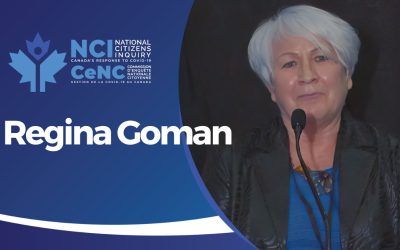Sixteen months ago, when Dalton McGuinty led the provincial Liberals to power in Ontario, he said it was time to end Mike Harris’s confrontational approach to Ottawa, for Liberals to work in partnership to get Canada going again.
It was all so heart-warming. But now listen to him.
He’s complaining that Ottawa favors Quebec, and takes $23 billion a year more out of Ontario than it returns in federal spending. And he says Ontario will “use its muscle” to make Ottawa smarten up.
Give the man a white Stetson–he sounds like an Albertan!
McGuinty’s got good grounds to complain, of course. But why did he need sixteen months to figure out Ottawa rips off Ontario (and Alberta)?
It has nothing to do with “fairness,” or “nation-building.” It’s just Ottawa’s way of staying pointlessly in charge of things that are none of its business, by buying votes.
McGuinty has stumbled upon what’s called the “compact theory” of Canadian federalism. It’s the idea that good fences make good neighbors.
Canada did not invent itself in 1867. Somebody had to create it, and the somebodies who did were the elected governments of four provinces (then British colonies), Ontario, Quebec, New Brunswick and Nova Scotia.
Other provinces were admitted or created later, as constitutional equals.
As a result, all provinces remain constitutionally sovereign — i.e. independent of Ottawa — within their agreed-upon fields of jurisdiction, especially health, education, welfare and natural resources.
The interesting thing about “compact federalism” is that it was not developed by the vulnerable smaller provinces, nor even by culturally-paranoid Quebec. It was established by Ontario.
The Ontarian who did this was Oliver Mowat. A Kingston lawyer and father of Confederation, he was in every way the opposite of John A. Macdonald — bland not debonair, dull not witty, pasty-faced not ruggedly handsome, honest not corrupt, sober not drunk, and methodical rather than brilliant. But he was just as shrewd as Macdonald and a way better lawyer.
Like most other founders (though not Macdonald), Mowat understood that Canada could not work if Ottawa ran everything.
That’s why in 1867 the colonies insisted on retaining the same responsibilities they had before they confederated, while Ottawa took on the role earlier played by the British government.
Upon becoming prime minister, Macdonald soon started making free use of his awesome “power of disallowance” (something the British government had almost never used) to strike down provincial laws he didn’t like, in areas that were clearly none of his business.
Mowat, who had briefly become a judge, reentered politics to defend provincial rights as premier of Ontario.
In one legal case after another, Mowat himself argued all the way to the British Privy Council that Macdonald was perverting the meaning, purpose and spirit of Confederation, and he won every battle. Macdonald died defeated in 1891, and Mowat died victorious twelve years later.
If not for Oliver Mowat, Macdonald’s ambition would have destroyed the nation he helped create. Mowat, solidly supported by Ontarians, saved federalism.
It was only much later–after the Second World War–that Ontarians blossomed into smug champions of central government power.
Never mind. They are now being so thoroughly and needlessly looted by the federal government, they were bound to rediscover the wisdom of their forgotten forebear.
Like they say, those who forget history are doomed to repeat it.


